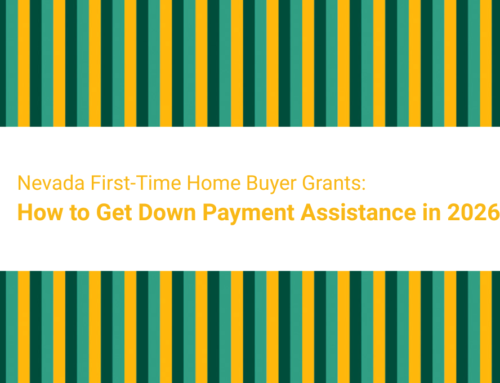Buying a home in Henderson is an exciting milestone. It marks stability, comfort, and growth. Yet, before leaping, one question matters most: can you truly afford it? Many first-time buyers feel ready for ownership but hesitate when it comes to numbers. That uncertainty can make the process seem harder than it is.
The biggest challenge for most people is understanding what “affordable” really means. Many buyers focus only on the home’s listing price. They forget the additional costs that come after moving in property taxes, insurance, and maintenance. These hidden expenses can stretch your budget if you don’t plan early. Without a full view of your finances, homeownership can shift from exciting to stressful.
This guide will walk you through three simple steps to calculate your home budget. You’ll learn how to measure income, estimate payments, and include every cost that comes with owning a home. Our goal is to help you make smart, confident choices before you buy. With the right plan, owning a home in Henderson can feel rewarding, not risky.
Step 1: Understand Your Total Monthly Income and Expenses
Before choosing a loan, you must know exactly where your money goes. This step creates a clear picture of your finances and stops guesswork.
Gather recent pay slips, bank statements, and debt records. Then, organize your cash flow. You’ll see how much you can safely put toward a home each month.
- Add total monthly income after taxes. Count every stable source salary, commissions, side jobs, or benefits. Reliable income helps lenders trust your repayment ability.
- List all monthly expenses. Include essentials like utilities, food, gas, internet, and childcare. Small costs add up faster than most people expect.
- Record every debt payment. Note credit cards, car loans, or student loans. Lenders review these when checking your debt-to-income ratio.
- Subtract expenses from income. The result shows your true disposable income. That number becomes the base for your safe mortgage range.
Knowing your full spending pattern helps you plan responsibly. If your leftover balance feels tight, adjust spending or save longer before applying. Our Mortgage FAQs explain how lenders review these numbers to find a loan that fits your lifestyle.
Step 2: Estimate Your Ideal Mortgage Payment
Now that you understand your monthly budget, it’s time to find a loan payment that fits. This step helps you match your income with realistic home goals.
Choose a Loan Type That Fits You
Loan types affect how much you pay each month. Conventional Home Loans often suit strong credit borrowers, while FHA Loans in Nevada help first-time buyers with smaller down payments. Some buyers pick an Adjustable-Rate Mortgage when they plan to refinance or move soon. Each type has trade-offs, so review them carefully before choosing.
Consider Interest Rates and Terms
Interest rates and loan terms decide how much your monthly payment will be. Longer terms lower payments but raise total interest over time. Shorter loans cost more monthly but build home equity faster. Many buyers prefer a Fixed-Rate Mortgage because payments stay the same for the entire loan period.
Choosing the right rate and term helps you stay within a comfortable range. You can explore examples in our First-Time Homebuyer Guide to see how different loans affect monthly costs.
Step 3: Include All Homeownership Costs

Your mortgage payment is only one part of owning a home. To plan correctly, you must include every related cost in your budget.
Property Taxes and Home Insurance
Every homeowner pays property taxes and home insurance. These costs depend on the location and home value. Henderson homeowners can use our Home Loans in Henderson, NV page to learn more about typical rates. Including these items ensures your monthly budget reflects real costs, not just loan payments.
Maintenance and Utility Costs
Owning a home also means regular upkeep. You’ll need to plan for repairs, landscaping, and seasonal maintenance. Utilities like electricity, gas, and water also vary by area and season. Learning terms in our Mortgage Glossary can help you understand how these costs connect to home ownership.
Adding these expenses gives you a complete picture of your monthly responsibility. This knowledge protects you from financial surprises once you move into your new home.
Smart Budget Tips for First-Time Buyers
Small financial habits can make a big impact when preparing for a home purchase. The goal is to stay stable and confident during the loan process.
- Build a strong emergency fund. Keep at least three months of expenses saved. It protects you if income slows or repairs appear suddenly.
- Avoid taking new loans. Large purchases before applying can lower your credit score and raise debt levels. Keep spending steady.
- Check and fix your credit report. Errors or unpaid accounts can hurt approval chances. Correcting them early may raise your score.
- Use extra income wisely. Direct bonuses or tax refunds toward your down payment. It reduces future interest and shows discipline.
- Compare loan offers. Review programs from our Mortgage Team. Even small rate differences can save thousands over time.
- Track your spending each week. Simple budgets help you spot areas to cut and grow your savings faster.
These actions prepare your finances long before the closing day. You can read success stories from real clients in our Client Testimonials to see how smart planning pays off.
Ready to Discover Your Real Budget?

Knowing what you can truly afford brings peace of mind before buying a home. It helps you plan smarter, avoid stress, and stay in control of your finances. With expert guidance and local insight, Drennen Home Loans makes that process easier for Henderson buyers. Our team helps you review every detail from income to loan options so you can make clear, confident decisions.
📞 Ready to talk? Reach out through our Contact a Loan Officer page today, let’s plan your home journey 🏡








